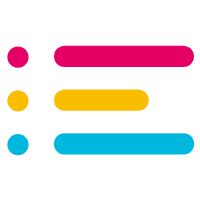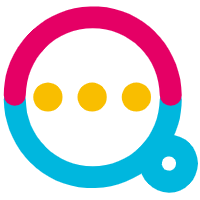There may only be one thing standing in the way of advanced artificial intelligence, a decentralized privacy-preserving computation network.1110Total views11Total sharesListen to article4:44

Artificial Intelligence (AI) is quickly proving how it can change the landscape of society today. With more data comes greater opportunity to turn data analysis into a method for strategic decision-making and unlock new user experiences.
Although the applications of AI are many from knowledge reasoning to game playing and even extending as far as machine learning, new vulnerabilities are becoming apparent with private and sensitive information. Many of the world’s technology giants in the United States and China have accumulated massive amounts of data through existing internet services in AI development. However, the more “intelligent” AI is, the more personal the information that needs to be acquired, managed and studied, raising the question of the ethics behind privacy protection.
As a result, many individuals are already skeptical when sharing personal and professional data due to the current concerns around the misuse of information. On the other side, organizations that leverage AI cannot access the large amounts of data and training models they need.
Fortunately, blockchain and privacy-preserving computation enable the privacy and security controls necessary for compliance and facilitating data sharing and exchange. In proper application, they can also make AI easier to understand, track and audit.
To bring this concept of advanced AI to life, PlatON is striving to build a decentralized artificial intelligence (AI) network and global brain that will effectively drive the democratization of AI for safe artificial general intelligence. The network was initiated by LatticeX Foundation and leverages a next-generation internet infrastructure protocol that significantly shortens proof size while accelerating proof generation and verification.
The team has since launched the latest version of their white paper (2.0), which for those familiar with the project, includes several updates to the sections regarding their privacy-preserving computation.
Bringing forth changes
Currently, existing public chains are not adequate for the needs of the privacy-preserving AI. Therefore, PlatON was required to implement a Later1 base protocol that is deeply adapted to privacy-preserving AI. The P2P base protocol is used for node discovery and connection through the RELOAD protocol.
Additionally, PlatON supports WASM and EVM virtual machines, each containing privacy-preserving algorithms that allow developers to protect a user’s data privacy within the contract. Algorithms also help to guarantee a standard for token privacy contracts through destruction, interactions and minting, which further guarantees a user’s anonymity.
The 2.0 version of the PlatON white paper also introduces the Metis privacy-preserving computations network, which combines algorithms, computing power and the data necessary for decentralized computing to ensure secure privacy-preserving computation. Metis supports two types of privacy-preserving protocols: secure multi-party computation and secure outsourcing computation.
Moirae, the decentralized AI platform, should also be noted for providing a one-stop AI development platform with all-inclusive modeling processes to assist in managing AI workflows. This platform also doubles as a marketplace for developers to view training datasets and interact with other models and paying users. A developer may also deploy a trained model to a single network node or multiple network nodes that make predictions with secure computing protocols.MORE INSIGHTS ON PLATON HERE
Finally, the 2.0 version of the white paper touches on abilities for a service node, Horae. With Horae, self-organizing group intelligence is used to bridge the virtual world to the real world, further connecting humans, IoT devices and other external IT systems. Although agents act autonomously, their interaction can help in the pursuit of more complex goals.
Taken together, updates to the PlatON whitepaper prove the team’s commitment to building a next-generation interoperable network for computations, the start of what may be a new paradigm.
An AI framework for developers
As it stands today, PlatON launched Alaya in October 2020, a testing solution and business sandbox for the future of financial infrastructure. The solution leverages cross-chain bridges between Alaya and several other chains.
Future pursuits from the team include a continued focus on advancing their privacy-preserving AI network throughout 2021 and plans to publish many of the associated protocols as stated in their official roadmap.
This article is reproduced from https://cointelegraph.com/news/bringing-blockchain-ai-and-privacy-preserving-computation-together-is-the-20-version-of-this-networks-white-paper




